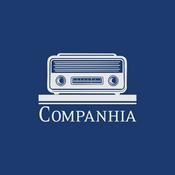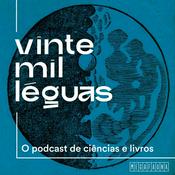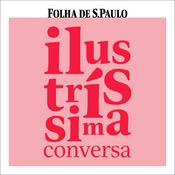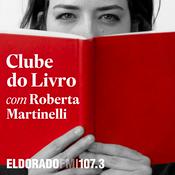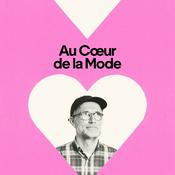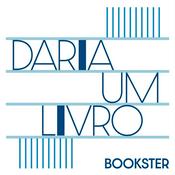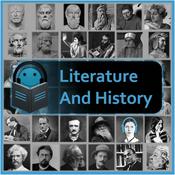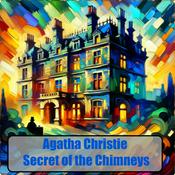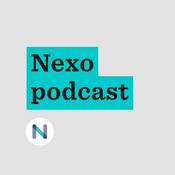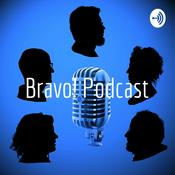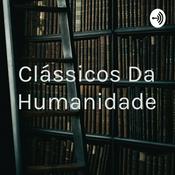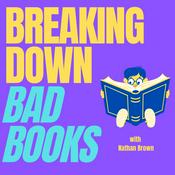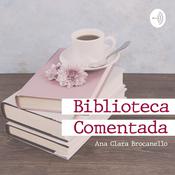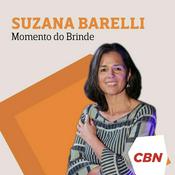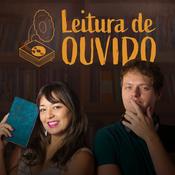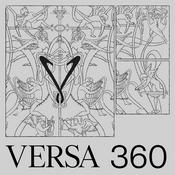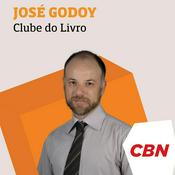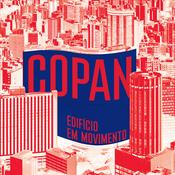39 episódios
- Michael Satlow joins me in the Lesche to discuss his new book An Enchanted World: The Shared Religious Landscape of Late Antiquity, which will be published on February 3 by Princeton University Press.
Resources
"Lived Religion Project" at the University of Erfurt's Max Weber Institute
If you're new to Late Antiquity, the foundational work is Peter Brown's 1971 The World of Late Antiquity: AD 150-750. It's been reissued in various editions, including a 2024 illustrated one from Thames & Hudson (relatively affordable!).
I mention Philogelos joke 203 in the episode introduction.
About our guest
Michael Satlow is Professor of Judaic Studies and Religious Studies at Brown University. A historian of religion in antiquity, his work explores how Jews, Christians, and others experienced the sacred in everyday life. His new book, An Enchanted World, draws on inscriptions and material culture to reveal a shared religious landscape in Late Antiquity, one filled with gods, angels, demons, and divine presence.
________________________________
Thanks for joining us in the Lesche!
Podcast art: Daniel Blanco
Theme music: "The Song of Seikilos," recomposed by Eftychia Christodoulou using Sibelius
This podcast is made possible with the generous support of Brown University’s Department of Classical Studies and the John Nicholas Brown Center for Advanced Study.
Instagram: @leschepodcast
Email: [email protected]
Suggest a book using this form - Piero Boitani joins me in the Lesche to discuss his new book Timaeus in Paradise: Metaphors and Beauty from Plato to Dante and Beyond (Princeton University Press 2025).
Ancient texts
Hebrew Bible, Genesis
Plato: Timaeus, Phaedrus, Symposium, Apology
Aristotle: Nicomachaean Ethics
Lucretius, De Rerum Natura
Ovid, Metamorphoses
Philo of Alexandria, On the Creation (de Opificio mundi: treatise on the Genesis creation narrative)
New Testament: Acts of the Apostles
Pseudo-Longinus, On the Sublime
Calcidius, Latin translation of much of Timaeus (4th century CE)
Pseudo-Dionysius the Areopagite, mystical treatises (c. 500 CE)
Later sites of reception & influence
In Literature and Philosophy
Johannes Scotus Eriugena (John "the Scot"), translation of Pseudo-Dionysius the Areopagite (9th century)
Thomas Aquinas, Commentary on the Divine Names (1260s)
Dante, Paradiso (early 1300s)
Marsilio Ficino's work on Plato and Timaeus (15th century)
Johannes Kepler (1571-1630), scientific treatises
Alfred North Whitehad, Process and Reality (1929)
Ezra Pound, Cantos (1915-1959)
In Visual Art and Architecture
Raphael, "School of Athens" (1509-11, Apostolic Palace, Vatican) and Chigi Chapel (1510s, Santa Maria del Popolo, Rome)
Michelangelo, Sistine Chapel (1508-1512)
Botticelli, "Birth of Venus" (mid-1480s)
Crypt of San Magno in Anagni (11th century)
Sculptures of Chartres Cathedral (12th century)
About our guest
Piero Boitani is Professor Emeritus of Comparative Literature at the University of Rome “Sapienza.” A Fellow of the British Academy, the Medieval Academy of America, the Accademia dei Lincei, and the Italian National Institute of Astrophysics, in 2016 he received the Balzan Prize for Comparative Literature. He is chairman of the Fondazione Lorenzo Valla and general editor of its series of Greek and Latin Writers.
His most recent books include Il grande racconto dei classici (Bologna, Il Mulino, 2024); «Reconnaître est un Dieu». L’anagnorisis dans la littérature occidentale (Paris, Garnier, 2025); Timaeus in Paradise: Metaphors and Beauty from Plato to Dante and Beyond (Princeton University Press 2025). A new book, The Five Elements-I cinque elementi, with a preface by Stephen Greenblatt, will be published by Mondadori, in the Lo Specchio series, in February 2026.
________________________________
Thanks for joining us in the Lesche!
Podcast art: Daniel Blanco
Theme music: "The Song of Seikilos," recomposed by Eftychia Christodoulou using Sibelius
This podcast is made possible with the generous support of Brown University’s Department of Classical Studies and the John Nicholas Brown Center for Advanced Study.
Instagram: @leschepodcast
Email: [email protected]
Suggest a book using this form - Inger Kuin joins me in the Lesche to discuss her new book Diogenes: The Rebellious Life and Revolutionary Philosophy of the Original Cynic (Basic Books 2025).
Ancient sources
Aristotle, Politics 1.3-7 (on 'natural' slavery)
Diogenes Laertius, 2.6, Life of Diogenes
Plutarch, Life of Alexander 14 (on the 'get out of my sun' episode)
Xenophon, Anabasis 5-6 (on Sinope, Diogenes' birthplace)
Other Diogenes testimonia from a variety of sources
For an accessible English-language collection of testimonia for Diogenes, see Robert Dobbin's The Cynic Philosophers, from Diogenes to Julian (Penguin Classics, 2012).
About our guest
Inger Kuin is a researcher, writer, and teacher focused on the intellectual history of ancient Greece and Rome. She is Associate Professor of Classics General Faculty at the University of Virginia. Originally from The Netherlands, she splits her time between Charlottesville (VA) and Rotterdam, and publishes both in English and in Dutch.
________________________________
Thanks for joining us in the Lesche!
Podcast art: Daniel Blanco
Theme music: "The Song of Seikilos," recomposed by Eftychia Christodoulou using Sibelius
This podcast is made possible with the generous support of Brown University’s Department of Classical Studies and the John Nicholas Brown Center for Advanced Study.
Instagram: @leschepodcast
Email: [email protected]
Suggest a book using this form - Tatiana Bur joins me in the Lesche to discuss her new book Technologies of the Marvellous in Ancient Greek Religion (Cambridge University Press 2025).
Ancient texts
Homer, Iliad 18 (on Hephaestus and his self-moving tripods)
Many Athenian tragedies and comedies that made use of the μηχανή or κράδη (in comedy)
Aristotle, Poetics (on the theatrical ‘crane’/μηχανή)
The Aristotelian/Peripatetic work Mechanical Questions (Μηχανικά)
Philo of Byzantium, Μηχανική Σύνταξη
Works on mechanics by Hero of Alexandria
Polybios, History 12.13, on the mechanical snail in the procession at Athens
Philostratus, Lives of the Sophists 2.5, on Herodes Atticus’ mechanical Panathenaic ship
Athenaeus, Deipnosophistai 196a-203c, on the πομπή of Ptolemy Philadelphus
Modern bibliography
Eric Csapo's work on ancient theater
Alfred Gell’s work on art agency, particularly "technologies of enchantment"
Susan Harvey, 2006. Scenting Salvation: Ancient Christianity and the Olfactory Imagination. Berkeley, Ca.
Verity Platt, 2011. Facing the Gods: Epiphany in Graeco-Roman Art, Literature, and Religion. Cambridge.
Hans-Jörg Rheinberger, 1997. Toward a History of Epistemic Things: Synthesizing Proteins in the Test Tube. Stanford, CA.
________________________________
Thanks for joining us in the Lesche!
Podcast art: Daniel Blanco
Theme music: "The Song of Seikilos," recomposed by Eftychia Christodoulou using Sibelius
This podcast is made possible with the generous support of Brown University’s Department of Classical Studies and the John Nicholas Brown Center for Advanced Study.
Instagram: @leschepodcast
Email: [email protected]
Suggest a book using this form - Mary Beard, Classics editor at the Times Literary Supplement, and Clifford Ando, senior editor of the Bryn Mawr Classical Review, join me in the Lesche to discuss the state of Classics reviewing today.
How do the TLS and BMCR assign appropriate reviewers?
What makes for a good review?
What's the line between critique and nastiness?
Why are reviews these days so often lacking in susbtantive criticism?
What do editors wish review authors knew or would consider before writing a review?
Some bibliography
Clifford Ando, "BMCR: A view under the hood." Bryn Mawr Classical Review 2022.11.26. (Read all the papers from the 30th anniversary celebration of BMCR here. Several deal with book reviewing.)
Mary Beard, Confronting the Classics: Traditions, Adventures, and Innovations. Liveright 2013. (See especially the Afterword, "Reviewing Classics".)
Daniel Mendelsohn, "A Critic's Manifesto," The New Yorker, August 28, 2012.
About our guests
Clifford Ando teaches Classics and History at the University of Chicago. His work focuses on the histories of law, religion, and government in the ancient world. He is the author, editor, and translator of some 20 books, and he has served as an editor, associate editor, or senior editor of Bryn Mawr Classical Review for not quite twenty years.
Mary Beard is professor emerita of classics at the University of Cambridge, a fellow of Newnham College, and professor of Ancient Literature at the Royal Academy. She is also the classics editor of the Times Literary Supplement, a fellow of the British Academy, and an international member of the American Academy of Arts and Sciences. She is the author of more than twenty books on the ancient world. Her latest book, Talking Classics: The Shock of the Old, is due out in spring 2026 with Profile Books (UK) and the University of Chicago Press (USA).
________________________________
Thanks for joining us in the Lesche!
Podcast art: Daniel Blanco
Theme music: "The Song of Seikilos," recomposed by Eftychia Christodoulou using Sibelius
This podcast is made possible with the generous support of Brown University’s Department of Classical Studies and the John Nicholas Brown Center for Advanced Study.
Instagram: @leschepodcast
Email: [email protected]
Suggest a book using this form
Mais podcasts de Arte
Podcasts em tendência em Arte
Sobre Lesche: Ancient Greece, New Ideas
In Greek antiquity a lesche (λέσχη) was a spot to hang out and chat. Here Brown University professor Johanna Hanink hosts conversations with fellow Hellenists about their latest work in the field.
Site de podcastOuça Lesche: Ancient Greece, New Ideas, Caneca de Mamicas e muitos outros podcasts de todo o mundo com o aplicativo o radio.net
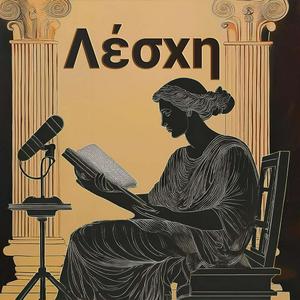
Obtenha o aplicativo gratuito radio.net
- Guardar rádios e podcasts favoritos
- Transmissão via Wi-Fi ou Bluetooth
- Carplay & Android Audo compatìvel
- E ainda mais funções
Obtenha o aplicativo gratuito radio.net
- Guardar rádios e podcasts favoritos
- Transmissão via Wi-Fi ou Bluetooth
- Carplay & Android Audo compatìvel
- E ainda mais funções


Lesche: Ancient Greece, New Ideas
Leia o código,
baixe o aplicativo,
ouça.
baixe o aplicativo,
ouça.


